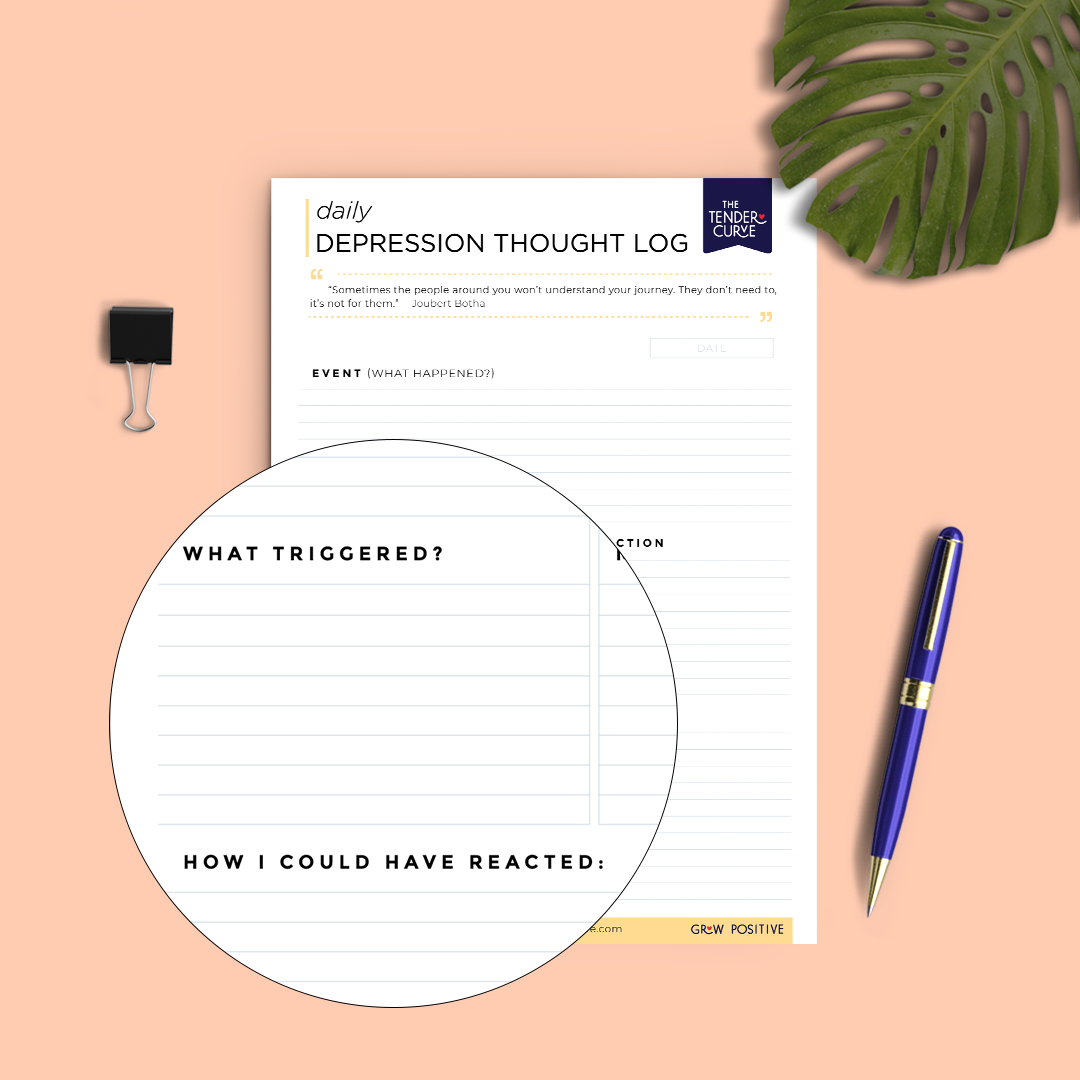Why Self Talk Matters?

What is Self talk?
Imagine you are stuck in a traffic jam while rushing to work one morning. You would notice yourself having an conversation with yourself saying,
“My whole day is ruined. If I don’t get to work on time, I’ll never hear the end of it. My boss will think that I’m no good and will surely pass me up for that promotion. I’ve been working all year for.” You will then start your day in a bad mood and feel demotivated thinking that there’s no point in working hard since you already ruined your chances for a promotion.
Or
You could have a different conversation altogether that goes,
“I’ll probably be no more than ten minutes late. I guess I’ll just have to take a quick lunch instead of going out to eat. If I can turn in my report before the end of the day and make sure that it’s error-free, I might still have a chance to get that promotion.” This constant, on-going internal conversation we have with ourselves is called Inner voice or Self talk. There is no second thought that it definitely influences how we feel and behave.
Our self-talk can be cheerful and supportive or negative and self-defeating. Self-talk can be beneficial when it’s positive, calming fears and raising confidence.
What are the dangers of negative Self-Talk?
Long-time back I had heard of this thrilling and interesting case that happened in one of the ice factories in India.
Mr Kumar had been working in an ice factory for the last 10 years as a floor supervisor. His job profiles included supervising the work force, the refrigeration compartment and enforce safety and sanitation regulations. His responsibilities included directing and coordinating the activities of employees engaged in the production or processing of goods.
It was his daily ritual to supervise the deep freeze department by 4.30 pm in the afternoon and leave by 5.30 pm. A loud hooter was the signal for the automated compartment doors to shut and the factory to close in 20 minutes. He was so used to his routine but that unfortunate day had something else in store for him.
He walked into the deep freeze compartment as usual to check the temperature tab and sat there to check the list of inventory as the manager had reported some misappropriation. But he was so lost in the paper work that he completely lost track of time. The security, as usual, rang the hooter for 5.30pm and all workers left the premises as usual. As everybody left for home no one noticed that Mr Kumar was missing. Mr Kumar was so engrossed at the task that he even failed to hear the hooter.
The final hooter rang and the automatic door for the deep freeze compartment began to close. This was when Mr Kumar came out of his deep slumber and realised he was in a soup. He frantically ran towards the main door. But, could not make it.
The automated doors had closed by then.



He was in a state of panic. He screamed and shouted for help. But his desperate cries fell on automated steel doors and cold compartment walls.
What scared him the most was the fact that sharp at 6pm, the head security would turn on the switch to deep freeze temperature and the temperature would be set to – 20 degree until the next morning.
He prayed that someone would notice his absence and would be rescued but his prayers were left unanswered. As his wrist watch ticked 6pm he missed a beat. He could feel the chill running down his spine as he was about to be frozen to death in no time.
He said to himself, ―as the temperature turns –20 degree, my legs and hands would start turning numb. I am already cold. I can’t breathe.‖
As he sat in despair, he used his pencil to scribble his situation on the wall for his family to know what happened and what he had to go through. Images of his loved ones flashed before his eyes. He shivered but continued writing about how he could feel the numbness in his legs and hands. Slowly how he felt paralyzed due to extreme temperature.
40 minutes past by and he wrote – ―I can hardly breathe, as my nostrils are frozen. I can hardly bare it for another 20 minutes. I am about to die soon. I don’t want to die. I am turning blue, I can hardly move, I am dying; I am dying.‖
And in a minute, Mr Kumar surrendered and froze to death. Next morning, when the factory workers resumed, they were shocked to see his body in the deep freeze compartment.
The police arrived and the body was sent for post-mortem. The reason of his death was declared to be a cardiac seizure. They further concluded that the seizure was not due to freezing temperature but due to fear and panic!
The shocking revelation about this case came from the security guard that he had forgotten to turn the temperature below zero that day as he had to leave early.
So what do you think was the reason for Mr Kumar’s death if it wasn’t for the extreme cold?
The answer is – Mr Kumar died of fear.
Fear that generated from his thoughts, his negative self-talk and his imagination. This had resulted in fear, panic and feeling of helplessness thus leading to physical contractions and changes
How can few thoughts kill a person?

That is the power of the thoughts! What we say, think and feel has the potential to directly affect our physical being. Our self-talk, stemming from that little voice in our heads, not only has the potential to affect our mood, but also has the potential to affect our physical state.
Self-talk is something you do naturally throughout your waking hours. Our bodies respond to what we say, both externally, and internally. And our self-talk can project a potentially dangerous power over our bodies and minds.
When we are overtaken by a pessimistic mood, we often feel this in our bodies — a heaviness in our chests and a tightness in our throats. When we’re frightened or anxious, our bodies instinctively react, our hands tremble, our pulse quickens and our lungs tighten.
This mind body connection is an important element in the way self-talk affects us.
Why is Self-Talk is a double-edged sword?
The brain has difficulty distinguishing between others and ourselves. When we think and say, our minds don’t always make the distinction between an external person, and the self, using the words and thinking the ideas.
If we say bad things about other people, we run the risk of encouraging such thoughts about ourselves. If we criticize others, complain they’re selfish, lazy, obnoxious, or inconsiderate, sooner or later, we’ll likely harbour similar opinions about ourselves.
Also using the words “I am” sends a powerful message to the brain.
Whenever we recruit the use of these words, we’re affirming something fundamental about ourselves. An ―I am‖ statement is a statement of identity.
To say, ―I am tired,‖ or ―I am depressed,‖ ―“I’m not good at this‖, “I can never do anything right!” “I got a C on this test. I guess I’m not good at math.”, doesn’t indicate a passing, temporary state. At least, not to our minds! Our minds interpret such statements as a validation of self, an integral component of our identity.
The more aware we are of our self-talk, the better equipped we are to channel our inner voices in the direction of personal development, self-confidence, and kindness.
Don’t you think it is time we check or be aware of our self-talk because your body hears everything your mind says?
Blog Written By :

Learning & Development Consultant and Counsellor
Rashmi Marathe- Lokapure is a Behavioural Life Coach and Counselling Practitioner with an experience that spans more than 10 years. Blended with experiential, motivational and behavioral science, she has clients located in every time zone and works closely with them to create a transformational journey.
FREE DOWNLOADS
*DISCLAIMER*
The following content is for information purposes only. We, in no way claim or assure that using the information can be a substitute for any kind of medical treatment if any. If you are diagnosed with any kind of medical/clinical condition please do not avoid visiting a professional.
ABOUT THE TENDER CURVE:
Our purpose is to spread positivity and motivation by focusing on self-love and self-care. We also work towards reducing the stigma around mental health and by creating mental health awareness through our blogs.
People today have forgotten how to be happy; they have forgotten what it is to be inspired what it to be real & motivated. We all are so busy with our daily lives today that we have forgotten to take time out for ourselves. We are here to remind you that you are special in your own ways. We are here to remind you that it’s okay to not finish a task, or meet deadlines, its ok not to be ok! You deserve to be happy, you deserve to smile, you deserve to be cared and loved.
Related Blog Posts
Understanding Happiness – The Secret to a Happy Healthy Life
Take a moment and remember the last time you felt like you had a purpose to live, your internal being was satisfied to be in the moment, and that moment could not be replaced by anything. Happiness is nothing else but a state of satisfaction and contentment. Happiness...
Men and Mental Health – Men have feelings too
For anyone having any illnesses, especially related to mental health, talking to anyone about it can seem extremely difficult be it even with a mental health professional.






0 Comments